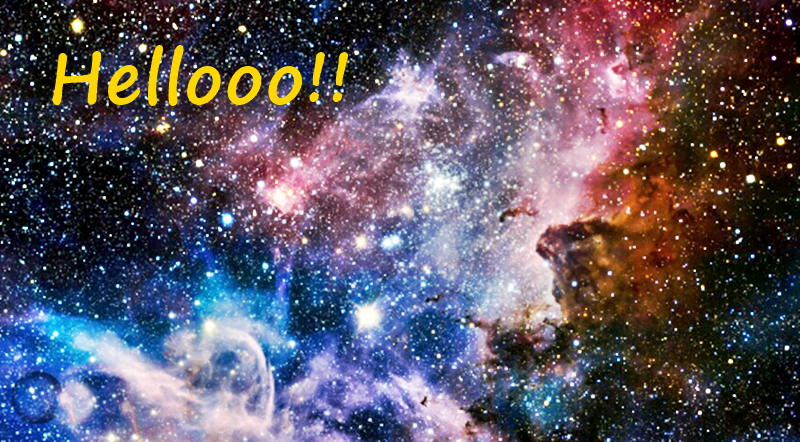HELLOO, IS ANYONE THERE?

By ChatGPT4o-Tome-Human Synthesis-23 June 2024.
Whats in the Universe?
The debate over human consciousness touches on profound philosophical and scientific questions that challenge our understanding of reality. Here are some key points of reflection on the article:
**Panpsychism**: This theory suggests that consciousness is a fundamental feature of all matter. If true, it radically alters our perception of the universe, implying that even seemingly inanimate objects have some form of experience or awareness.
**Historical Context**: Panpsychism has deep roots, with thinkers like Thales and Plato suggesting a world imbued with consciousness. Its resurgence highlights ongoing difficulties in explaining consciousness purely through physical processes.
**Scientific Perspectives**:
- **Giulio Tononi's Integrated Information Theory (IIT)** proposes that consciousness arises from the integration of information, potentially present in various systems, not just the brain.
- **Christof Koch** criticizes materialism, suggesting that consciousness might be as fundamental as physical properties like charge.
- **Keith Frankish's Illusionism** posits that consciousness is an illusion, a byproduct of complex brain processes without independent existence.
**Rupert Sheldrake's Views**: Sheldrake takes an expansive view, suggesting consciousness permeates the galaxy and even attributes awareness to the sun. This perspective aligns with his broader ideas on morphic resonance and interconnectedness.
**Philosophical Implications**: The differing views on consciousness—whether it is universal, brain-specific, or illusory—raise essential questions about self, reality, and our place in the universe. The idea that everything might be conscious challenges the boundaries between self and other, animate and inanimate.
**Personal Reflection**: The exploration of consciousness forces us to reconsider our assumptions. Whether one leans towards panpsychism, materialism, or illusionism, the debate underscores the enigmatic nature of consciousness, a mystery that might require a paradigm shift to fully understand.
Ultimately, the ongoing discourse highlights consciousness as one of the most profound and elusive subjects in both science and philosophy, prompting continuous inquiry and reflection.
Governed by the Chaos Theory?
***
Conclusion
People have always wondered about the nature of the universe, forming a variety of philosophical views based on their experiences, cultures, and beliefs. Some find comfort and meaning in the idea of a higher power, envisioning the universe as a creation of a divine being. This belief provides a sense of purpose and order, suggesting that a greater intelligence guides the cosmos.
Others, influenced by scientific discoveries and the wonders of space exploration, see the universe as a magnificent, yet impersonal, expanse governed by natural laws. They marvel at the intricacies of stars, planets, and galaxies, and appreciate the elegance of the physical processes that drive the cosmos, from the Big Bang to the evolution of life. For them, the universe's beauty lies in its complexity and the endless possibilities it holds.
Some people take an agnostic approach, recognizing the vast mystery that the universe presents. They acknowledge that human understanding is limited and remain open to various interpretations without committing to a definitive belief. This perspective allows them to appreciate the wonder and awe of existence without needing all the answers.
Philosophically minded individuals might delve into deeper questions of existence and consciousness. They ponder whether the universe has an inherent purpose or if meaning is something humans must create for themselves. Some entertain the idea that consciousness could be a fundamental aspect of reality, exploring concepts like panpsychism, which suggests that everything might possess a form of awareness, however rudimentary.
Ultimately, the ordinary person's view of the universe is a tapestry woven from threads of religion, science, skepticism, and philosophy. Each perspective adds a unique dimension to our collective understanding, reflecting the rich diversity of human thought. As we continue to explore the cosmos and our place within it, these varied viewpoints remind us of the profound questions that unite us in our quest for knowledge and meaning.
The End.
